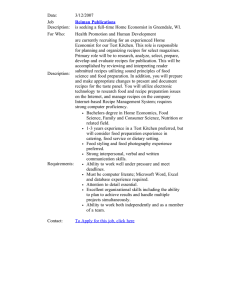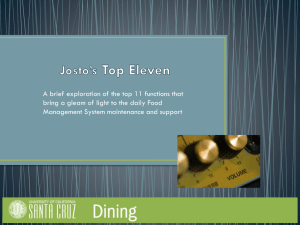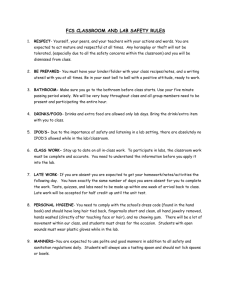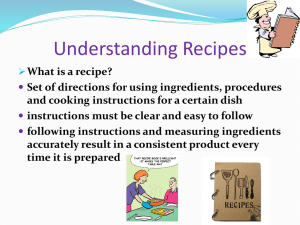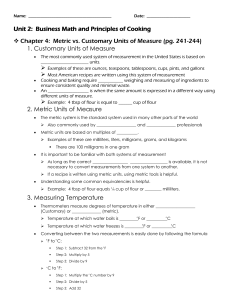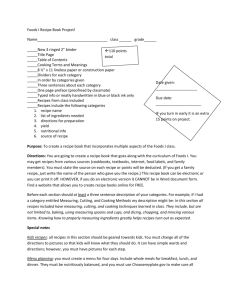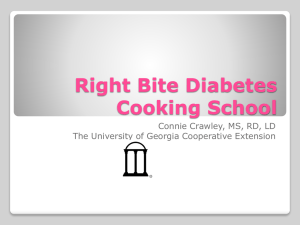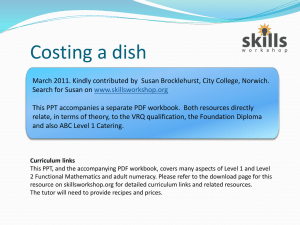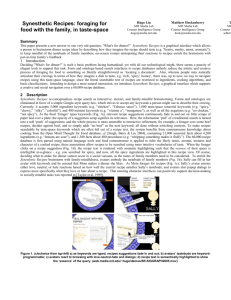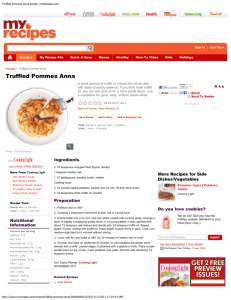The recipe in the history of English ORGANISERS: Dr Magdalena
advertisement
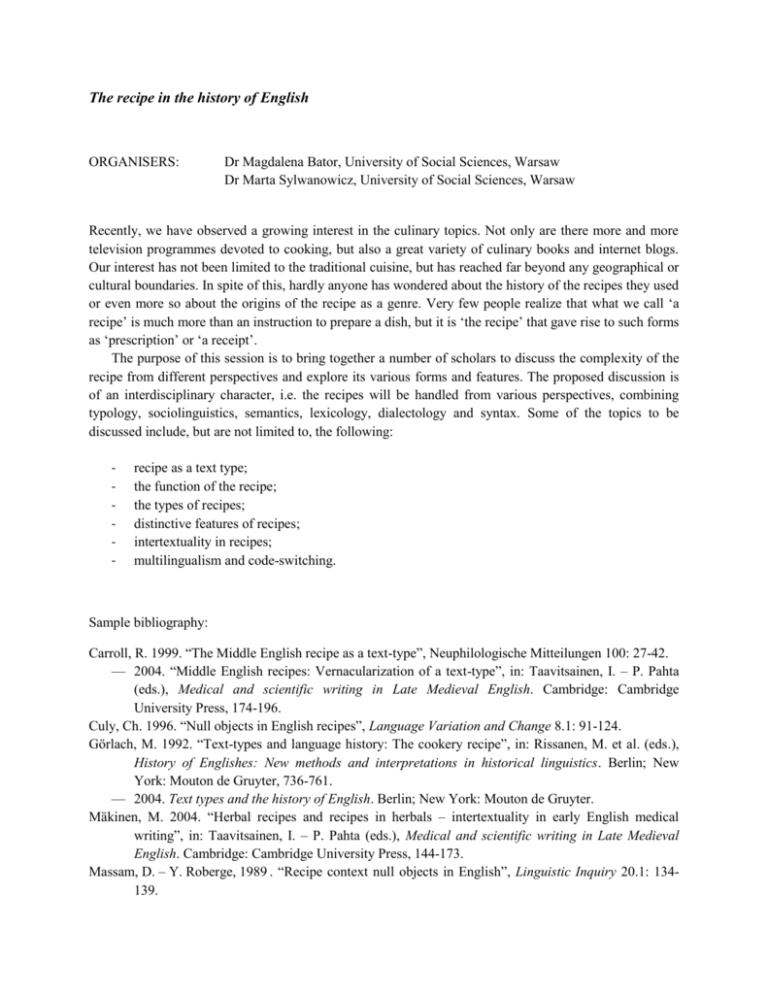
The recipe in the history of English ORGANISERS: Dr Magdalena Bator, University of Social Sciences, Warsaw Dr Marta Sylwanowicz, University of Social Sciences, Warsaw Recently, we have observed a growing interest in the culinary topics. Not only are there more and more television programmes devoted to cooking, but also a great variety of culinary books and internet blogs. Our interest has not been limited to the traditional cuisine, but has reached far beyond any geographical or cultural boundaries. In spite of this, hardly anyone has wondered about the history of the recipes they used or even more so about the origins of the recipe as a genre. Very few people realize that what we call ‘a recipe’ is much more than an instruction to prepare a dish, but it is ‘the recipe’ that gave rise to such forms as ‘prescription’ or ‘a receipt’. The purpose of this session is to bring together a number of scholars to discuss the complexity of the recipe from different perspectives and explore its various forms and features. The proposed discussion is of an interdisciplinary character, i.e. the recipes will be handled from various perspectives, combining typology, sociolinguistics, semantics, lexicology, dialectology and syntax. Some of the topics to be discussed include, but are not limited to, the following: - recipe as a text type; the function of the recipe; the types of recipes; distinctive features of recipes; intertextuality in recipes; multilingualism and code-switching. Sample bibliography: Carroll, R. 1999. “The Middle English recipe as a text-type”, Neuphilologische Mitteilungen 100: 27-42. — 2004. “Middle English recipes: Vernacularization of a text-type”, in: Taavitsainen, I. – P. Pahta (eds.), Medical and scientific writing in Late Medieval English. Cambridge: Cambridge University Press, 174-196. Culy, Ch. 1996. “Null objects in English recipes”, Language Variation and Change 8.1: 91-124. Görlach, M. 1992. “Text-types and language history: The cookery recipe”, in: Rissanen, M. et al. (eds.), History of Englishes: New methods and interpretations in historical linguistics. Berlin; New York: Mouton de Gruyter, 736-761. — 2004. Text types and the history of English. Berlin; New York: Mouton de Gruyter. Mäkinen, M. 2004. “Herbal recipes and recipes in herbals – intertextuality in early English medical writing”, in: Taavitsainen, I. ‒ P. Pahta (eds.), Medical and scientific writing in Late Medieval English. Cambridge: Cambridge University Press, 144-173. Massam, D. – Y. Roberge, 1989 . “Recipe context null objects in English”, Linguistic Inquiry 20.1: 134139. Taavitsainen, I. 2001a. “Middle English recipes: Genre characteristics, text type features and underlying traditions of writing”, Journal of Historical Pragmatics 2: 85-113. — 2001b. “Changing conventions of writing: the dynamics of genres, text types, and text traditions”, European Journal of English Studies 5/2: 139-150. — 2012. “Discourse forms and vernacularisation processes in genres of medical writing 13751550”, in: Anneli Aejmelaeus – Päivi Pahta (eds.), Translation – Interpretation – Meaning. Studies across Disciplines in the Humanities and Social Sciences 7. Helsinki: Helsinki Collegium for Advanced Studies, 91-112.
